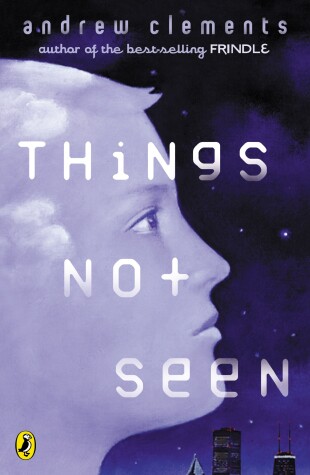Reviewed by nannah on
content warnings:
ableism
sexist remarks
Bobby Phillips wakes up one average morning to find that he's become invisible. Trying to cope with his drastically changed life, he meets Alicia, a girl who's blind, and who helps him feel okay with himself and his odd disability.
This book could've been a lot more wonderful (in my opinion) if it was taken in a different direction--maybe a touching coming-of-age story about the strange friendship between Bobby and Alicia. Instead, the story was so laden with the "science" about how Bobby went invisible in the first place and how to remove his disability that the book didn't go anywhere and just stagnated.
On the plus side, I'm glad the book includes more characters with disabilities than most YA (or otherwise) books I've read. Alicia, the love interest and one of the MCs, is blind, and the MC is invisible (a fictional disability if I can say so). Alicia's storyline is for the most part well-written. Her reactions to insensitive remarks about her eyes is very believable and written with sensitivity. She's easily the strongest character. I'm very glad that she was written the way she was, especially when a lot of other things in the book was handled really awfully.
Which brings me to what I didn't like so much: Bobby. The narrator and MC. He's incredibly hard to sympathize with. He's selfish to a disgusting extent, only cares about Alicia as far as how she makes him feel, judges every woman by how "pretty" they are, and doesn't really care about his parents--even when they might be in danger of being arrested. He's so full of angst that I was so sick of him and his PoV. I couldn't imagine spending more books with him narrating.
OK. Now to my main irritant: the rampant ableism. Here are some quotes taken directly from the book:
"There are little white scars below both eyebrows, but nothing you'd notice, nothing to keep her from being pretty."
"Her eyes still work fine for crying."
"But so what? 'See you 'round. See you later.' Everybody says stuff like that." (after Alicia reacts to him saying this)
I could accept that this was simply one of Bobby's faults. He's a teenager in high school, and he's ableist. But he never understands later on in the book. He never actually gets that his previous actions maybe weren't the best. He never becomes more aware of his actions/words and remains just as insensitive as he was in the beginning.
I can't bring myself to like this book. And I can't stand the narrator, so I don't think I could read any of the sequels.
Reading updates
- Started reading
- 30 June, 2015: Finished reading
- 30 June, 2015: Reviewed
